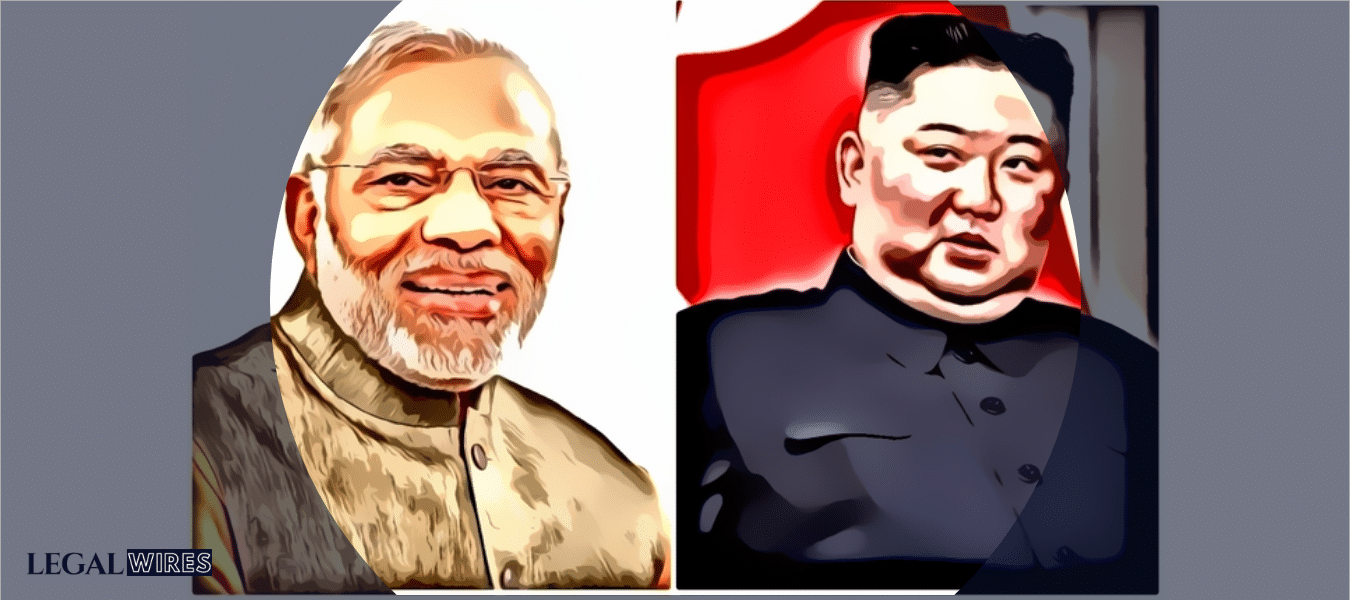India has decided to help North Korea after a request from the World Health Organisation in medical assistance worth $1 million.

India has decided to help North Korea after a request from the World Health Organisation in medical assistance worth $1 million. The Ministry of External Affairs, in a statement, said, “India is sensitive to the shortage of medical supply situation in the Democratic People’s Republic of Korea (DPRK) and decided to grant humanitarian assistance of USD 1 million in the form of anti-tuberculosis medicines”
TB is caused by bacteria (Mycobacterium tuberculosis) and it most often affects the lungs. TB is spread through the air when people with lung TB cough, sneeze or spit. A person needs to inhale only a few germs to become infected.
Every year, 10 million people fall ill with tuberculosis (TB). Despite being a preventable and curable disease, 1.5 million people die from TB each year – making it the world’s top infectious killer[1].
Most of the people who fall ill with TB live in low- and middle-income countries, but TB is present all over the world. About half of all people with TB can be found in 8 countries: Bangladesh, China, India, Indonesia, Nigeria, Pakistan, Philippines and South Africa.[2]
World Health Organization (WHO) guidance will help countries accelerate efforts to stop people with tuberculosis (TB) infection becoming sick with TB by giving them preventive treatment.
A quarter of the world’s population is estimated to be infected with TB bacteria. These people are neither sick nor contagious. However, they are at greater risk of developing TB disease, especially those with weakened immunity. Offering them TB preventive treatment will not only protect them from becoming sick but also cut down on the risk of transmission in the community.
The medical-assistance is to aid for WHO’s ongoing anti-tuberculosis programme. The consignment of anti-tuberculosis medicine worth $1 million was handed over to North Korean authorities by Indian Ambassador to DPRK Atul Malhari Gotsurve in the presence of a WHO representative.
TB remains the top cause of death among people with HIV. TB preventive treatment works synergistically with antiretroviral therapy to prevent TB and save lives. Reinvigorated efforts by governments, health services, partners, donors and civil society will be needed to increase access to TB preventive treatment to the levels targeted.
The new consolidated guidelinesrecommend a range of innovative approaches to scale up access to TB preventive treatment:
- WHO recommends a scale-up of TB preventive treatment among populations at highest risk including household contacts of TB patients, people living with HIV and other people at risk with lowered” immunity or living in crowded settings.
- WHO recommends an integration of TB preventive treatment services into ongoing case finding efforts for active TB.All household contacts of TB patientsand people living with HIV are recommended to be screened for active TB. If active TB is ruled out, they should be initiated on TB preventive treatment.
- WHO recommends thateither a tuberculin skin test or interferon-gamma release assay (IGRA) be used to test for TB infection. Both tests are helpful to find people more likely to benefit from TB preventive treatment but should not become a barrier to scale-up access. Testing for TB infection is not required before starting TB preventive treatment in people living with HIV, and children under 5 years who are contacts of people with active TB.
- WHO recommends new shorter options for preventive treatment in addition to the widely used 6 months of daily isoniazid. The shorter options that are now recommended range from a 1 month daily regimen of rifapentine plus isoniazid to 3 months weekly rifapentine plus isoniazid, 3 months daily rifampicin plus isoniazid, or 4 months of daily rifampicin alone.
“As people around the globe come together to commemorate World TB Day, WHO is calling on governments, affected communities, civil society organizations, health-care providers, donors, partners and the industry to unite forces and step up the TB response – notably for TB preventive treatment – to ensure no one is left behind,” said Dr Tereza Kasaeva, Director of WHO’s Global TB Programme. “The new WHO guidance shows the way forward for millions to rapidly access new tools and shorter, safer options for preventive treatment. The time for action is now.“
TB preventive treatment is an affordable intervention that can prevent families from sliding into poverty and preserve the health and economy of whole communities. WHO anticipates that as new and safer drugs come onto the markets, and as prices fall, it will become a highly-cost effective way to save millions of lives[3].
[1] Source Link
[2] Source Link
[3] Source Link





